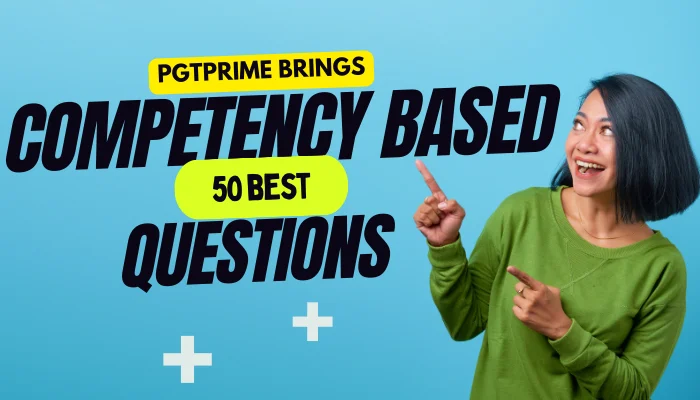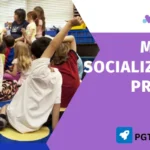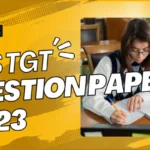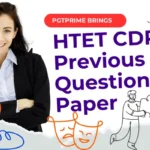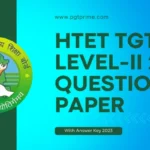When institutions like CBSE and NCERT are trying to bring a new dimension of education – based on a students-centered approach, then it becomes a compulsion for us to practice this topic through CBSE Competency Based Questions.
Never mind, a small portion of pedagogy is interesting to learn and discuss, especially when it will add a new paradigm to our education system.

Coffee never knew it would taste so nice and sweet, before it met milk and sugar. We are good as individuals but become better when we meet and blend with the right people..
Be strong, be fearless, be beautiful and believe that anything is possible when you have the right people there to support you.
However, it is important to brush up your knowledge before attempting these questions through our article “Master your Skills by CBSE Competency Based Education (CBE) 2024“. I strongly encourage you to read this article. Who knows, these questions may give you some goosebumps and compel you to think in a new direction.
I invite you to subscribe to our telegram channel, where we have shared subject-wise EMRS syllabus 2023 for the PGT exam.
Let’s start practicing the questions.
CBSE Competency Based Questions (Multiple Choice Question)
(1) In the context of CBSE Competency-based education, which of the following statements is correct?
- Skills are a hidden characteristic that is essential to learn and apply knowledge.
- Knowledge is a visible characteristic that can be acquired through training or experience.
- Ability (Attitude) is a visible characteristic that represents a miserable and observable proficiency.
- Knowledge is a visible characteristic that represents a conceptual and theoretical understanding.
Answer: CBSE Competency Based Questions
(4) Knowledge is a visible characteristic that represents a conceptual and theoretical understanding.
(2) Which among the following statements is incorrect?
- Knowledge is the theoretical understanding of a subject.
- Ability is the capability, potential, or capacity to do something.
- Skill is the enduring talent that can help a person learn faster.
- Competency is a set of skills ability, and knowledge that has an individual performing a given task.
Answer: CBSE Competency Based Questions
(3) Skill is the enduring talent that can help a person learn faster.
(3) Which of the following is NOT a synonym for Competency-based education?
- Proficiency-based Learning
- Mastery-based Learning
- Performance-based Learning
- Text-based Learning
Answer: CBSE Competency Based Questions
(4) Text-based Learning.
(4) Which of the following is a key feature of competency-based teaching in education?
- It provides an unlimited time frame to the Student for learning.
- It uses multiple pedagogies and activities for teaching and learning.
- It focuses on fostering learning at a teacher’s pace.
- It follows a fixed syllabus and learning targets for all students.
Answer: CBSE Competency Based Questions
(2) It uses multiple pedagogies and activities for teaching and learning.
(5) The purpose of a student assessment in a competency-based education system is to
- Test knowledge and recall of content.
- Rank student according to their performance.
- Determine Student’s mastery and skills.
- Give different tests to different students.
Answer: CBSE Competency Based Questions
(3) Determine Student’s mastery and skills.
(6) How is academic proficiency determined in a Competency-based education system?
- By calculating the total marks achieved by the student.
- By assessing performance against specific learning standards.
- By comparing students with each other.
- By grouping students as high and low performers.
Answer: CBSE Competency Based Questions
(2) By assessing performance against specific learning standards.
(7) In the context of CBSE Competency-Based Education, which of the following statements is correct?
- The principle of “Equity is set before all else” means giving each student the same things as everyone else.
- The principle of “Transparency helps students take ownership” suggests that learning objectives should be hidden from students and parents.
- The principle of “Students get the support they need individually” contradicts the concept of mastery learning.
- The principle of “Teacher assessment for growth and mastery” implies that teachers can use assessment methods and tools such as formative assessment, summative assessment, and progress monitoring.
- The principle of “Students move forward when they demonstrate mastery” means that in CBSE competency-based education, students move forward regardless of their grades and time.
Answer: CBSE Competency Based Questions
(4) The principle of “Teacher assessment for growth and mastery” implies that teachers can use assessment methods and tools such as formative assessment, summative assessment, and progress monitoring.
(8) Which of the following is NOT a principle of CBSE Competency-Based Education?
- Equity is set before all else.
- Transparency helps students take ownership.
- Students get the support they need individually.
- Students move forward based on grades and time.
- All students learn at the same pace.
Answer: CBSE Competency Based Questions
(5) All students learn at the same pace.
(9) Which of the following is a key reason to shift the traditional education system to a competency-based education system?
- The traditional system is built upon a fixed mindset.
- The traditional system focuses on preparing students for their career and life roles.
- The traditional system is aligned with the personalized needs and goals of a student.
- The traditional system clearly defines mastery expectations of learning outcomes.
Answer: CBSE Competency Based Questions
(1) The traditional system is built upon a fixed mindset.
(10) What are the assumptions of a competency-based education system?
- Learning is time-bound.
- Learning is a standard and general phenomenon for learners.
- Learning is flexible and personalized to student’s individual needs.
- Learning should result in high grades and good scores.
Answer: CBSE Competency Based Questions
(3) Learning is flexible and personalized to student’s individual needs.
Check this out: Diving Deep into 35 Best Case Study MCQ Questions.
(11) Competency-based education system ensures that
- All students are assessed at the same point in time.
- Teachers take ownership of students learning.
- Generalized and universal learning plans are created for all students.
- Students become self-reliant and independent thinkers.
Answer: CBSE Competency Based Questions
(4) Students become self-reliant and independent thinkers.
(12) Why do we need a competency-based education system?
- Promote lifelong learning in students.
- Meet the expectations of the school and teachers.
- Create a generalized system of Education for all students.
- Compare students with each other based on their grades.
Answer: CBSE Competency Based Questions
(1) Promote lifelong learning in students.
(13) Which of the following represents the core benefit of a competency-based education system?
- One size fits all pedagogy.
- Seat time progress.
- Student’s agency and ownership.
- Fixed mindset.
Answer: CBSE Competency Based Questions
(3) Student’s agency and ownership.
(14) Competency-based education is a purpose-driven system that focuses on
- Student records.
- Student enrollment.
- Student success.
- Student feedback.
Answer: CBSE Competency Based Questions
(3) Student success.
(15) Which of the following is a quality design principle of a competency-based education system?
- Creating a socially acceptable education system.
- Creating an admirable environment for students.
- Creating a competitive environment for students.
- Creating an equitable education system.
Answer: CBSE Competency Based Questions
(2) Creating an admirable environment for students.
(16) A well-designed competency-based education system reinforces and nurtures of culture of learning and inclusiveness in a school. what does it mean?
- High-performing students enjoy special privileges over low-performing students.
- Learning is a sequential and constructed experience for all students.
- Each student receives personalized support to build mastery.
- Schools do not ensure physical and emotional safety for students.
Answer: CBSE Competency Based Questions
(3) Each student receives personalized support to build mastery.
(17) Instructional approaches and assessments in a competency-based education system are based on the discipline of
- Learning sciences.
- Learning blocks.
- Learning matrix.
- Learning process.
Answer: CBSE Competency Based Questions
(1) Learning sciences.
(18) Which of the following statements correctly describes the concept of “student agency”?
- Teachers ensure that the teaching process achieves plant learning outcomes.
- Students have a high sense of competitiveness to achieve high outcomes.
- Students have more opportunities to participate in extracurricular interests and activities.
- Students have a voice and ownership and decisions about their learning.
Answer: CBSE Competency Based Questions
(4) Students have a voice and ownership and decisions about their learning.
(19) The structure design principles focuses on building________and_________ Needed in schools to support competency based education system.
- Curriculum and coaching.
- Skills and abilities.
- Infrastructure and capabilities.
- Culture and diversity.
Answer: CBSE Competency Based Questions
(3) Infrastructure and capabilities.
(20) Which among the following statements correctly describes the consistency principles?
- Learning objectives is instill the necessary skills and competencies in students.
- Learning outcomes are clearly stated to all the stakeholders.
- Schools are aligned in their culture, structure, and pedagogy.
- Students are assessed against the constant criterion of proficiency.
Answer: CBSE Competency Based Questions
(3) Schools are aligned in their culture, structure, and pedagogy.
Check this out: Super 30 MCQ on Experiential Learning.
(21) Which of the following is an example of intrapersonal skills important for teachers in a competency-based education system?
- Knowledge of pedagogy.
- Collaboration with peers and colleagues.
- Personal growth and development.
- Developing effective lesson plans.
Answer: CBSE Competency Based Questions
(3) Personal growth and development.
(22) Which of the following represents interpersonal competencies expected of teachers in a competency-based education classroom?
- Collaboration and teaming.
- Critical thinking.
- Growth mindset.
- Assessment literacy.
Answer: CBSE Competency Based Questions
(1) Collaboration and teaming.
(23) Which of the following does not fall under the purview of knowledge competencies?
- Knowledge of student’s learning needs and styles.
- Awareness of student’s interests, strengths, and preferences.
- Knowledge of pedagogy and academic content.
- Social skills to collaborate with the student’s family.
Answer: CBSE Competency Based Questions
(4) Social skills to collaborate with the student’s family.
(24) Playing the role of a Learner Guide, Teachers in a competency based education system
- Develop an evidence-based assessment system.
- Conduct classes at the scheduled time.
- Design learning pathways and lesson plans.
- Utilize instructional tools and strategies to meet each learner’s needs.
Answer: CBSE Competency Based Questions
(4) Utilize instructional tools and strategies to meet each learner’s needs.
(25) As a learner coach in a competency-based education teaching environment, the teacher
- Ensure students maintain discipline and follow classroom rules.
- Provide more support to high-performing students.
- Take on additional responsibilities for Co-curricular activities.
- Create an inclusive environment for all students to feel accepted.
Answer: CBSE Competency Based Questions
(4) Create an inclusive environment for all students to feel accepted.
(26) Which of the following is an example of connecting concepts that can be used to develop high-order skills under a competency-based education system?Question
- Explaining and elaborating facts and ideas.
- Providing verbal explanations of a phenomenon.
- Showing relationships and linkages between concepts.
- Using metaphors to explain concepts.
Answer: CBSE Competency Based Questions
(3) Showing relationships and linkages between concepts.
(27) As evidence-based practitioners teachers in a competency-based education system focus on creating assessments that
- Can identify high and low-performing students in the classroom.
- Can provide reliable data and feedback on learning.
- Can help decide promotion or demotion of students.
- Can be used to assign grades and rank of students.
Answer: CBSE Competency Based Questions
(2) Can provide reliable data and feedback on learning.
(28) Competency-based teaching activates agency and ownership in students by
- Decreasing their level of extracurricular responsibilities.
- Sharing learning targets and providing timely feedback.
- Asking them to abide by the syllabus and curriculum.
- Monitoring and assessing their marks over the year.
Answer: CBSE Competency Based Questions
(2) Sharing learning targets and providing timely feedback.
(29) What is the role of coaching in a competency-based teaching environment?
- To help students get good grades and marks in examinations.
- To help students build new skills and mindsets for learning.
- To encourage students to participate in Co-curricular activities in school.
- To prepare his students for competitive assessments.
Answer: CBSE Competency Based Questions
(2) To help students build new skills and mindsets for learning.
(30) Competency-based education is also known as?
- Skill-based education.
- Outcome-based learning.
- Performance-based learning.
- All of the above.
Answer: CBSE Competency Based Questions
(4) All of the above.
Check this out: Best 30 NCF 2023 MCQ Questions for Aspirants.
(31) Which of the following is Variable in competency-based education?
- Time.
- Subject.
- Learning.
- Environment.
Answer: CBSE Competency Based Questions
(1) Time.
(32) Which of the following is Constant in competency-based education?
- Time.
- Subject.
- Learning.
- Environment.
Answer: CBSE Competency Based Questions
(3) Learning.
(33) Which is the competency-based assessment proposed by CBSE to assess student’s learning outcomes and key competencies?
- SAFAL.
- PASS.
- VIKAS.
- GRACE.
Answer: CBSE Competency Based Questions
(1) SAFAL.(Structured assessment for analyzing learning)
(34) Which statement is not correct about performance-based assessment that it taps into student’s higher order thinking skills?
- Using deductive and inductive reasoning to solve a problem.
- Evaluating the reliability of sources of information.
- Synthesizing information to conclude.
- Reproducing knowledge-based information.
Answer: CBSE Competency Based Questions
(4) Reproducing knowledge-based information.
(35) Outcomes-based approach does not provide
- Improved and active learning process.
- Better quality teaching.
- Assessment as pass or fail.
- Common reference point.
Answer: CBSE Competency Based Questions
(3) Assessment as pass or fail.
(36) Each competency-based education system has been given a number and code for
- Easy identification and referencing.
- Arranging the learning outcomes horizontally.
- Arranging the learning outcomes hierarchically.
- Arranging the learning outcomes systematically.
Answer: CBSE Competency Based Questions
(1) Easy identification and referencing.
(37) A combination of knowledge, skills, and attitudes appropriate to the context is defined as
- Attitude.
- Competency.
- Learning outcomes.
- Skills.
Answer: CBSE Competency Based Questions
(2) Competency.
(38) In the competency model instruction is designed to match what for the students?
- Age.
- Skills.
- Developmental readiness.
- Class/Grade.
Answer: CBSE Competency Based Questions
(3) Developmental readiness.
(39) In a competency-based education assessment is done
- Quarterly.
- Throughout the year.
- Half-yearly.
- Annually.
Answer: CBSE Competency Based Questions
(2) Throughout the year.
(40) Learning in a competency-based education classroom is measured by
- Grades and ranks.
- Classroom projects.
- Mastery of learning targets.
- Percentage and percentiles.
Answer: CBSE Competency Based Questions
(3) Mastery of learning targets.
Check this out: 50 MCQ on FLN: Adds up to big results.
(41) In a CBE Classroom,students receive timely and__________support based on their________learning needs.
- Differentiated and Individual.
- Differentiated and collective.
- Generalized and Individual.
- Generalized and collective.
Answer: CBSE Competency Based Questions
(1) Differentiated and Individual.
(42) Competency-based learning systems enable students to progress and master skills
- At the pace of teachers.
- As per the defined schedule in the curriculum.
- At their own pace.
- Based on the annual calendar of assessment.
Answer: CBSE Competency Based Questions
(3) At their own pace.
(43) Which of the following statements is true for classroom?
- Students progress at teachers face by finishing the curriculum at a defined time.
- Students learn passively and memorize for exams.
- Students learn in a linear progression associated with the grade levels.
- Students are allowed to work at their own pace to learn.
Answer: CBSE Competency Based Questions
(4) Students are allowed to work at their own pace to learn.
(44) Which of the following represents an example of responsive facilitation in a CBE classroom?
- Teachers generate a learning management system to restore data and information about each student.
- A group of volunteer students work together to assist teachers in school activities.
- Students are provided opportunities for dialog between teacher and student at specific, Actionable feedback on their performance.
- Students are given leadership roles to organize extracurricular activities in a school.
Answer: CBSE Competency Based Questions
(3) Students are provided opportunities for dialog between teacher and student at specific, Actionable feedback on their performance.
(45) Which of the following is not an emphasis on discovery-based mini-lessons as a pedagogical practice?
- Inquiry of the concept.
- Rote learning of theories.
- Problem-based learning.
- Conceptual understanding of a topic.
Answer: CBSE Competency Based Questions
(2) Rote learning of theories.
(46) In CBE classrooms flexible student groups are created based on the students
- Needs and interests.
- Grades and test scores.
- Language and mathematical ability.
- Age and class.
Answer: CBSE Competency Based Questions
(1) Needs and interests.
(47) Which of the following represents modeling as a pedagogical practice in a CBE classroom?
- Illustrating a diagram on a blackboard.
- Role-playing to teach social skills.
- Listening to a classroom lecture.
- Rewriting ideas in one’s word.
Answer: CBSE Competency Based Questions
(2) Role-playing to teach social skills.
(48) Which of the following tools can be used by classroom teachers to encourage retrieval practice?
- Lecture and note taking.
- Audio-visual tools.
- Flashcards and quizzes.
- Annual exams and Class tests.
Answer: CBSE Competency Based Questions
(3) Flashcards and quizzes.
(49) A Some total of cognitive elements, functional aspects as well as interpersonal attributes and ethical values is known as
- Attitude.
- Competency.
- Learning outcomes.
- Skills.
Answer: CBSE Competency Based Questions
(2) Competency.
(50) What is the aim of competency based education?
- To cover the content.
- Ensure good marks.
- Develop core skills.
- Complete the syllabus.
Answer: CBSE Competency Based Questions
(3) Develop core skills.
Please let us know through the comment section if you want any topic to be discussed in this blog. We will try to provide an article on that subject as early as possible.
Please leave your valuable comment in the comment box! Your comments are valuable to us.
